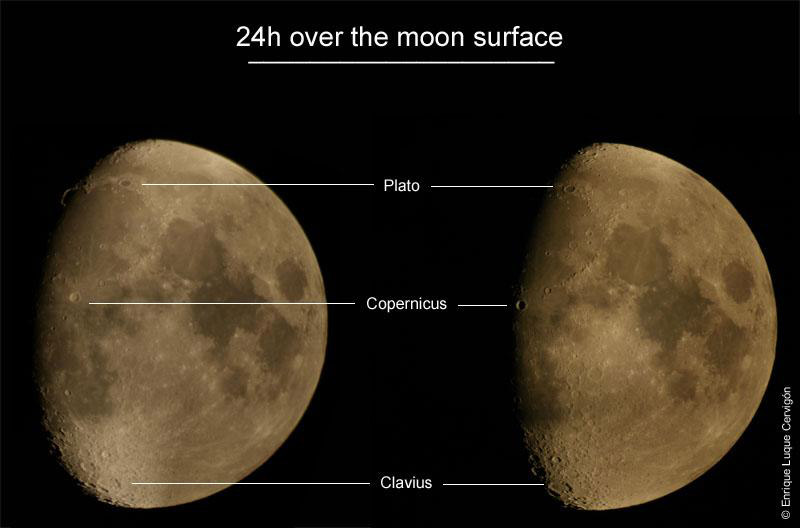February 2, 2019
24 Hours
Originally published November 24, 2009

image by Enrique Luque Cervigón, Spain
The magic of the Moon is its constant change. For an observer, sights of one night are rapidly gone until the next month. Over-achievers who want to see all the major features rarely can do it in a year much less a month. And seeing Plato when the Sun is rising and the eastern peaks cast long shadows is not the same as observing under high illumination and catching the bright rims of the craterlets sprinkled on its floor. Once the sunrise terminator embraces Tycho, it is a glorious view for a number of nights, including full Moon, when the crater is circled by a dark ring of impact melt. But bigger Clavius to the south can disappear entirely when the Sun is high in its sky. Enrique's two night views - looking like an old-fashioned stereo pair - is representative of what can be seen with even a small telescope. And it only gets better with a larger scope and increased knowledge. And time - every night is different. So if you want to give someone a holiday gift that will last a lifetime, give a child a small but good reflector or refractor.
Chuck Wood
Technical Details
29-30 august 2009. Skywatcher refractor 80/400.
Related Links
Enrique's website
Yesterday's LPOD: Appleton-Tsu Basin?
Tomorrow's LPOD: Reticulated Terrain
COMMENTS?
Register, Log in, and join in the comments.



